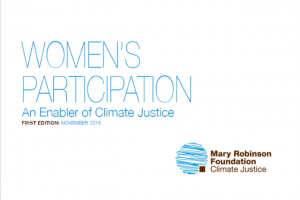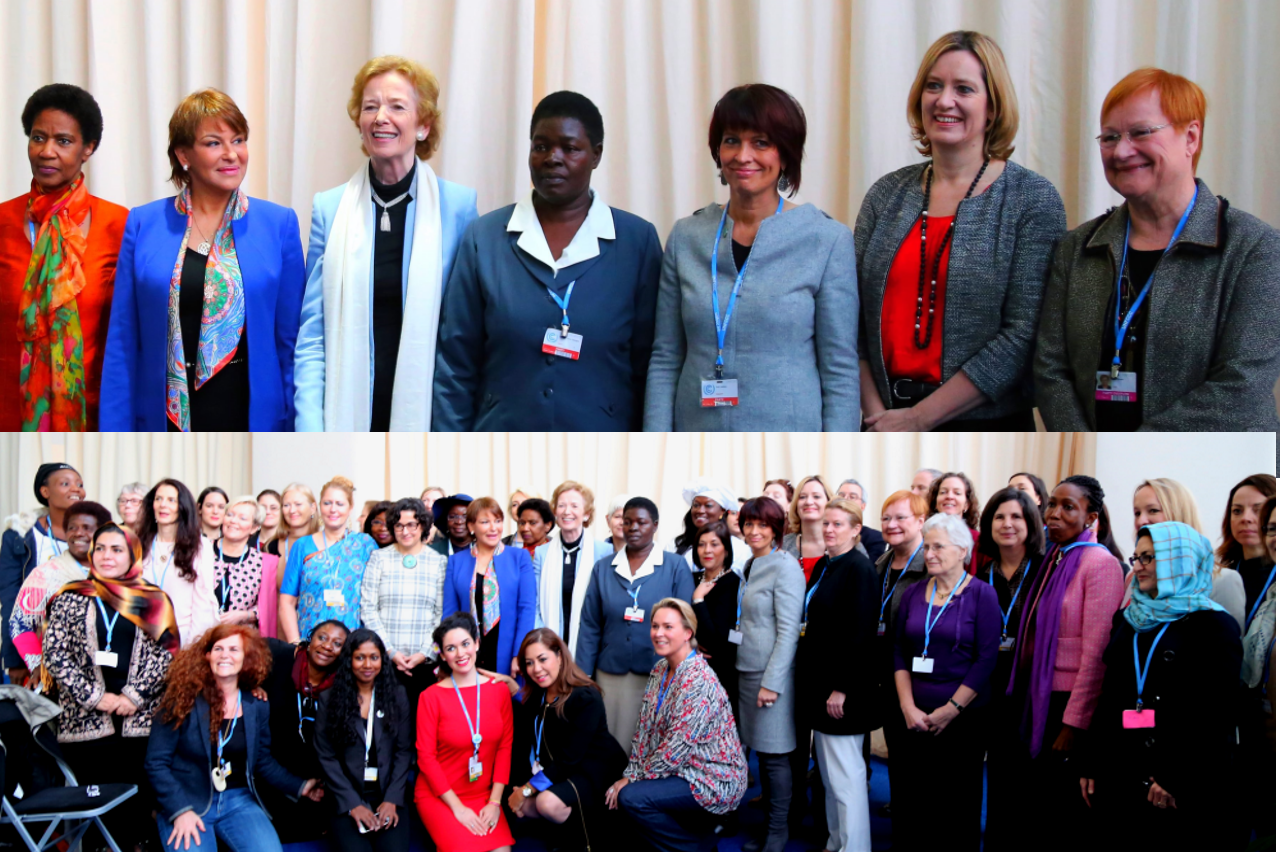On Gender Day at COP21 women come together in solidarity to continue to champion gender equality and the empowerment and participation of women in climate decision-making processes.
December 08 is officially Gender Day at COP21. The Foundation’s activities this Gender Day are built around a number of events celebrating women’s leadership. Mary Robinson will attend a meeting with the Network of Women Ministers and Leaders for the Environment, join Ségolene Royal, French Minister of Ecology, Sustainable Development and Energy, Vandana Shiva and Winnie Byanyima for an event titled Women and Climate in the French Pavilion and join in activities organised for the Women Climate Justice Campaign.
Too often women are categorised as vulnerable with little acknowledgement that they can and already are offering solutions – they offer hope for successful adaptation and low carbon development through their critical knowledge, experience and the unique role that they play in agriculture, food security, livelihoods, income generation and management of our natural resources.
“Women are at not only at the frontline of climate change, it is women who influence change,” said Mary Robinson at a meeting of The Women’s Earth & Climate Action Network on 7 December, calling for women’s voices to be included in decision making processes.
Women, who account for 50% of the world’s population, historically have not been equal participants in the design, planning and implementation of climate action. This should not be the case. As women and men are affected differently by the impacts of climate change, climate policies need to take this on board and be gender-responsive.
A key component of a climate justice approach is therefore highlighting the impacts that climate change has on women.
 To demonstrate the positive benefits of women’s meaningful participation more work is required to document and share examples of good practice to enable women’s participation.
To demonstrate the positive benefits of women’s meaningful participation more work is required to document and share examples of good practice to enable women’s participation.
This is not just about balanced representation – it is also about enabling meaningful participation and empowerment – so that the ultimate goal of gender equality can be achieved.
Listen to some women leaders’ voices on climate change
Ursula Rakova, a community leader from Papua New Guinea, is helping her community members resettle from their island, because their existence is threatened by the impact of climate change.
Constance Okollet, Chairperson of the Osukuru United Women’s Network in Eastern Uganda, talks about the impacts of climate change on women in her community:
The Leaders’ Forum on Women Leading the Way: Raising Ambition for Climate Action”, brought together women leaders who are actively working on climate change issues, from a variety of constituencies to highlight the challenges they face as well as the solutions they are already offering. Watch the summary statement of the chairs of the discussion:
Related Links
Find out more about our work on Women’s Leadership on Gender and Climate Change
Women’s Participation – An Enable of Climate Justice
The Troika+ of Women Leaders on Gender and Climate Change
The Full View: Advancing the Goal of Gender Balance in Multilateral and Intergovernmental Processes
Rights for Action – Putting People at the Centre of Action on Climate Change
Perspective of Women on Climate Change Carried to UN Climate Summit 2014


